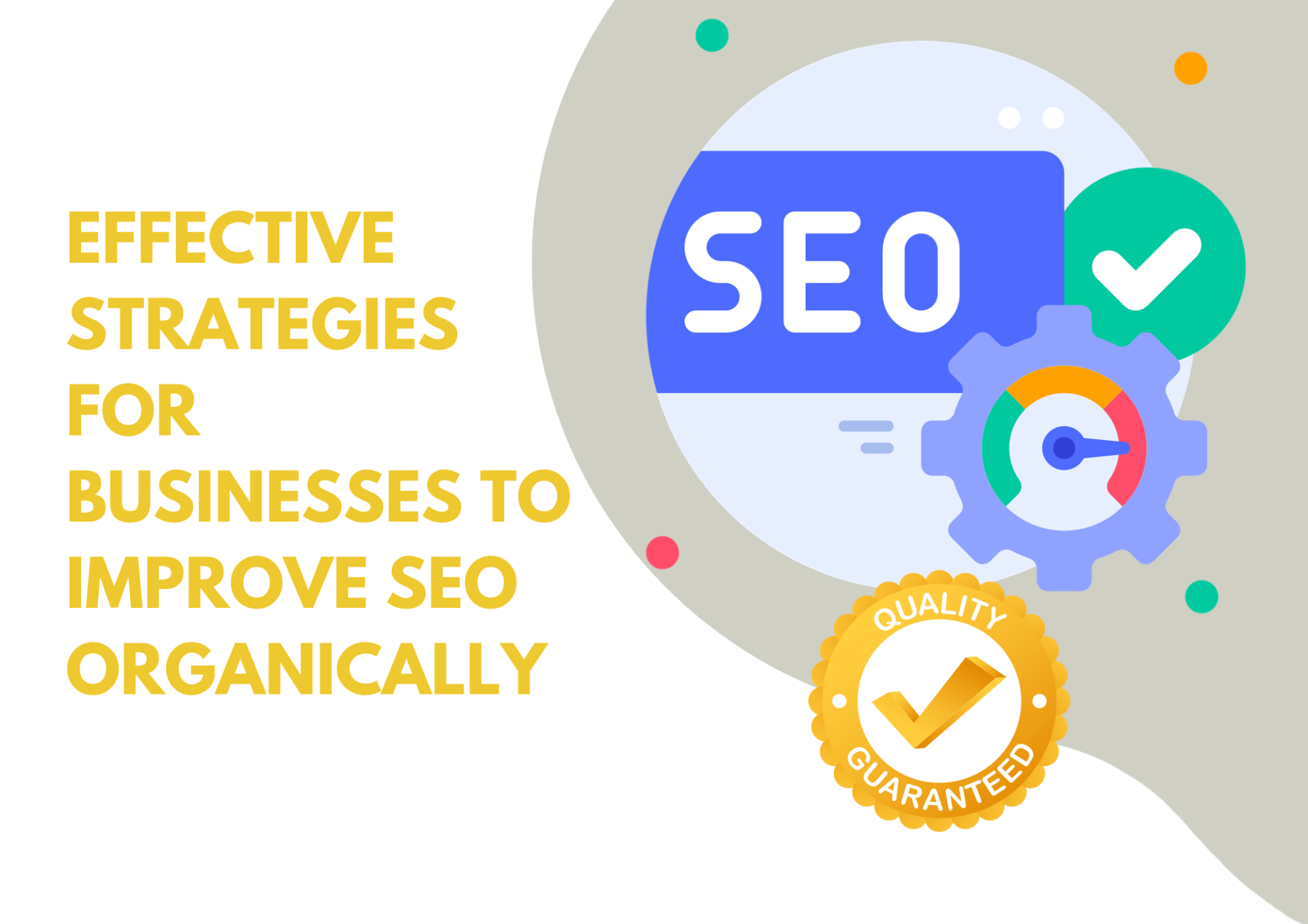Effective Strategies for Businesses to Improve SEO Organically

In today's digital landscape, achieving a strong online presence is paramount for businesses of all sizes. Search Engine Optimization (SEO) plays a pivotal role in ensuring your website ranks prominently on search engine results pages (SERPs). While there are paid methods to boost your visibility, organic SEO remains a cost-effective and sustainable way to enhance your online reach. In this article, we'll explore actionable strategies that can help businesses improve their SEO organically.
1. Keyword Research: The Foundation of SEO
Keyword research is the cornerstone of any successful SEO strategy. Begin by identifying relevant keywords and long-tail phrases that align with your business and target audience. Tools like Google Keyword Planner, SEMrush, or Ahrefs can assist in discovering high-potential keywords. Focus on keywords that strike a balance between search volume and competition.
2. Content is King
High-quality, informative, and engaging content is the lifeblood of organic SEO. Create content that addresses the needs, questions, and pain points of your target audience. By offering valuable insights, solutions, or entertainment, you can attract and retain visitors. Regularly updating your content signals to search engines that your website is active and relevant.
3. On-Page Optimization
Optimise your web pages for search engines by incorporating targeted keywords in the following elements:
Title Tags: Craft compelling and keyword-rich title tags to grab users' attention and improve click-through rates.
Meta Descriptions: Write concise, persuasive meta descriptions that encourage users to click on your links in search results.
Header Tags (H1, H2, H3): Use header tags to structure your content logically and improve readability.
Keyword Placement: Seamlessly integrate keywords into your content, ensuring it reads naturally and doesn't feel forced.
4. Mobile Optimization
With mobile users on the rise, ensuring your website is mobile-friendly is imperative. Google prioritises mobile-first indexing, meaning your site's mobile version directly impacts search rankings. Responsive design and mobile optimization are crucial for SEO success.
5. Page Speed Matters
A slow-loading website can lead to high bounce rates and decreased rankings. Use tools like Google PageSpeed Insights to identify speed issues and make necessary improvements. Compress images and enable browser caching to enhance loading times.
6. User Experience (UX)
A seamless user experience is not only essential for visitors but also for SEO. Optimise your site for easy navigation, clear calls-to-action (CTAs), and a clean, user-friendly design. Google rewards sites that provide a positive UX.
7. Link Building: Quality Over Quantity
Earning high-quality backlinks from reputable websites remains a vital part of organic SEO. Focus on creating exceptional, shareable content that naturally attracts backlinks. Outreach to industry influencers and relevant websites for guest posting opportunities.
8. Local SEO
For businesses serving specific geographic areas, local SEO is essential. Claim and optimise your Google My Business profile, encourage online reviews, and maintain consistent NAP (Name, Address, Phone number) information across online directories.
9. Analyse and Adapt
Regularly monitor your website's performance using tools like Google Analytics and Google Search Console. Track key metrics such as organic traffic, click-through rates, and keyword rankings. Analyse the data to identify areas for improvement and refine your SEO strategy accordingly.
10. Stay Informed and Adaptable
The digital landscape is ever-evolving, with search engine algorithms continually changing. Stay informed about SEO trends and updates by following industry blogs, attending webinars, and adapting your strategy to align with the latest best practices.
In conclusion, improving organic SEO is a fundamental aspect of online success for businesses. By conducting thorough keyword research, creating valuable content, optimising on-page elements, and focusing on user experience, you can enhance your website's visibility in search results. Remember that organic SEO is an ongoing process that requires dedication and adaptability, but the long-term benefits are well worth the effort.